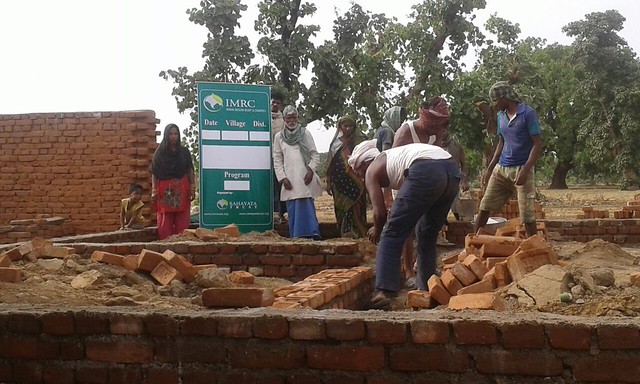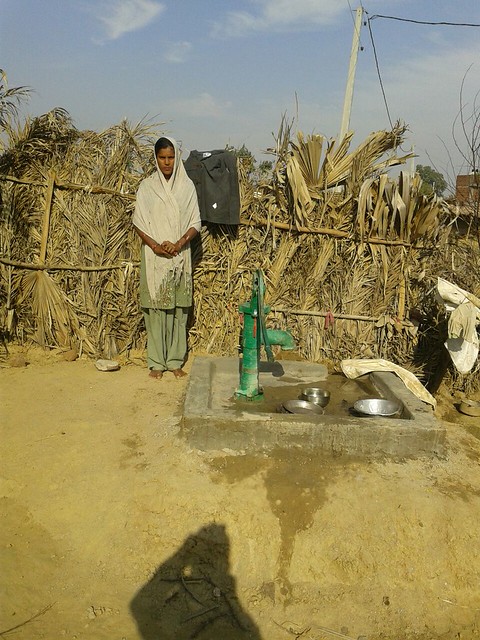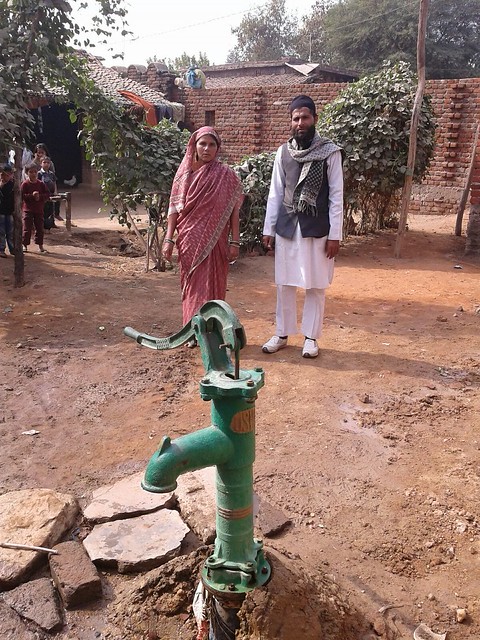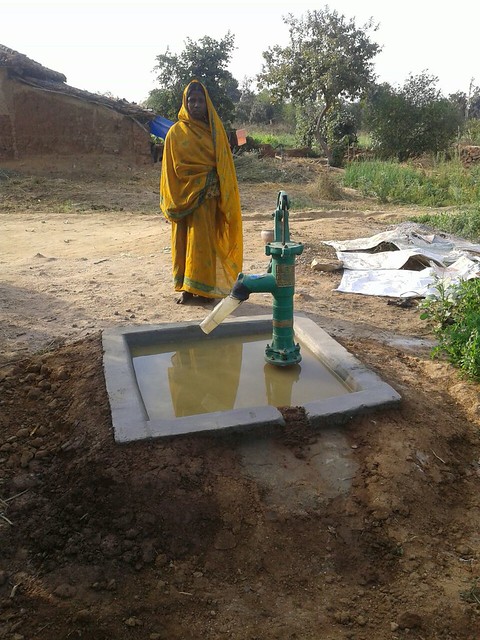By Raqib Hameed Naik, TwoCircles.net
As a debilitating drought enters its thrird successive year in Marathwada region of Maharashtra, Mohammad Yousuf, 45 a farmer from village Waranga in District Hangoli recollects how they have been struggling to find potable water to survive on.
“This is the worst ever drought I have seen in my life. All the wells and nearby canals have dried up in my village. People here are struggling for drops of water. Cattles are dying and our crops are already in ruins. Government tankers only arrive once in a week, whose water is dirty and frothy and unfit for human consumption, thus leaving us prone to various health related ailments,” said Yousuf.

Marathwada is one of the five regions in Maharashtra containing eight districts, reeling under severe drought since last three years and is the most water-deprived region of Maharashtra. The rivers, canals, ponds and nallas have dried up. The poor population is forced to buy water at inflated prices from ‘water mafia’. The failing crops have forced farmers to attempt suicides.
In 2013, thousands of miles away from India, a US-based Indian organization, Indian Muslim Relief & Charities (IMRC) worried about the climate change in India leading to hot summers and scarcity of rains leading to shortage of drinking water took an initiative, ‘Water Well Project’ to build and install bore wells, hand and electric pumps in rural area of India.

In the three drought-affected districts of Marathwada viz. Nanded, Hingoli and Parbhani, IMRC has installed 50 hand pumps since January 2016.
Sunil Chaure, 42 from village Manatha in Nanded District, Marathwada used to buy a bucket of water for Rs 2-5, which was eating up one third of his monthly income but he is now relived after IMRC installed a hand pump in his village.
“After the installation of hand pump, there is a sigh of relief in our village. We are very happy that our Muslim brethren are coming forward to help us and others should take cue from them and come forward to help every drought affected village in Marathwada,” said Chaure.

Younous Ahmed, IMRC volunteer, who is looking after the Water Well Project in Marathwada region, said, “People are struggling for drops of water. The government’s drilling machines usually digs up to 200 meter and stop if they don’t find any water. But when we started drilling we found that water was available at 500-700 feet deep in the earth and started drilling at such depths.”
Government tankers usually supply water once in four or eight days which is less than sufficient for the poor families to survive. The water crisis is so intense that people fight each other for just few liters of water.
“Whenever a government water tanker arrives, the people fight among themselves to get more water. Sometimes water is put in the dried wells, where fights have proved fatal leading to deaths by falling in the wells,” said Vishwanathan Patil from Village Warwat in Nandel, Marathwada.

IMRC has build and installed more than 400 bore wells and hand pumps across six Indian states since 2013.
In year 2013, IMRC built 54 water wells and 40 hand pumps, in 2014, 57 bore wells and 75 hand pumps whereas in 2015 the numbers has touched 200.
“In last three years we have built and installed more than 400 tube wells and hand pumps. These wells are specifically built centrally in a village to give access of water for the entire community, regardless of anyone’s faith,” says Waheed Qureshi, Manager of Sahayata Trust, the India partner of IMRC through which its projects are implemented.
Besides the drought affected regions, the bore wells and hand pumps have been installed in the rural areas suffering from neglect of their governments, having deficiency of rains, recurring droughts, having unsafe source of drinking water and where people had to walk miles to fetch water. The water projects have also benefitted, the families living below poverty line, widows & orphans, women and children who used to bring water on a cycles and shoulders after walking several kilometers.
In Madhya Pradesh, the bore wells and hand pumps were installed in different villages like Chatrukhedi, Mau, Barukhedi, Burakhedi, Magrana, Dhanora, Manglaj, Banskheda, Sherpura, Khujner.
In Maharashtra the areas covered are Bhogaw, Girgaw, Khurgaw, Chingaw, Kamtha, Taroda, Daitna, Parbhani, Babulgaw, Balapuri and more bore wells are expected to be completed soon.
In Bihar, the areas covered are Harnabuzrug, Chakdarab, Fatimachak, Raypura, Parsotipur, Arajiparsotipur, Babura, Aabdachak, Nanduchak, Dhayharna.
In Jharkhand, the areas covered are villages in Chatra and Palamu district.
In Andhra Pradesh, the areas covered are, Pileru, Kalkiri, Rajuvaripalli, Kalluru, Gadi, Ellankivaripalli, Sodum, Madalcoloni , Muhammadiyulapalli, Kuppam.
In Telangana, the areas covered are, Syednagar, Qasimnagar, Venkatadripet, Uppugal, Thatikonda, Khanpur, Kandalgudem, Torrur, Ontimamidipalli.
“We have installed 114 hand pumps till November 2015 in dozens of villages in Bihar and Jaharkhand.The local people where the handpumps were installed have expressed joy and immense gratitude for having local access to potable water. People from all the faiths are benefitting from IMRC water projects,” said Wahid Nadvi, the IMRC volunteer looking after water projects in Bihar and Jharkhand.
The IMRC has also completed installing 35 out of 50 tube wells across different villages and mohallas in Sumbal Sonawari belt of Kashmir to provide the local populace with access to clean drinking water.
“We were badly suffering because we had to fetch water from Nallah which is two Kms from my home. The quality of water in Nallah is very bad and very dangerous for health. But thanks to IMRC that they installed tube well in our village and made clean water accessible to us,” said Shahbaz Hussain, 40 a teacher from Bathipora, Sonwari. The work on remaining 15 tube wells is expected to be completed soon.
